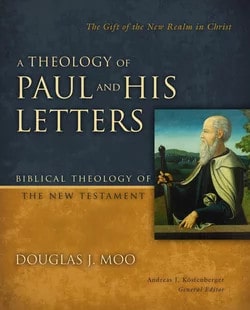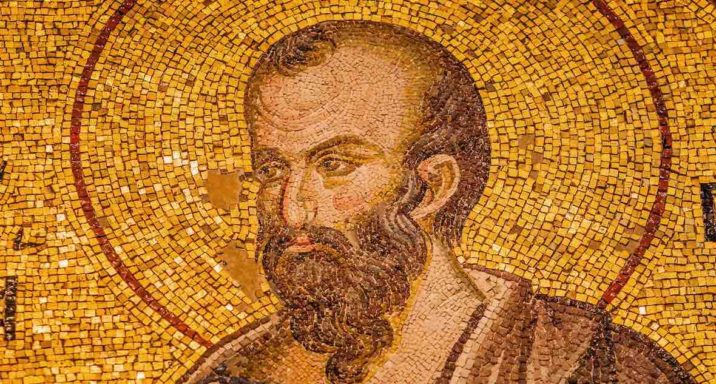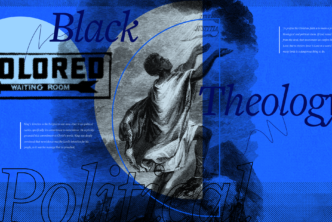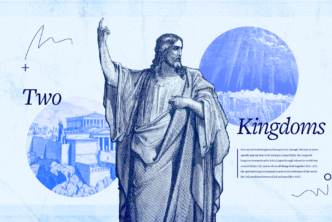
This highly anticipated volume by Moo gives pastors, scholars, and all serious students of the New Testament precisely what they need for in-depth study and engagement with Paul.
Watch the entire interview, or skip to an excerpt from the transcript (below) where Moo explains what he means that biblical theology acts as a bridge between exegetical work, systematic theologies, and application—and what he means by the organizing concept of “realm.”
Transcript
Daniel
To start with your introduction, you use the analogy of a “bridge” when discussing the role of biblical theology. Could you expand upon what you mean by that analogy? Why that analogy in particular?
Douglas
That analogy is actually fairly widely used by people working in the area of biblical theology, trying to, sort of, locate biblical theology between exegetical work on the one hand and systematic theology and application on the other. The question always is, after we exegete the text, given in its ancient context, how do we bring that into our contemporary situation in terms of thinking well about the Bible, about Scripture, about God—living well as God wants us to. And biblical theology has been usefully compared again to that bridge where we are synthesizing some of the results of exegesis, still in fundamental biblical terms and analogies, so that it can be of use to the systematic theologian, on the other side of the bridge, as it were, if we may think about it that way.
And one of my concerns in doing this kind of work and that I hope is revealed in the book I’ve written on Paul’s theology here, is that that bridge I think has to bear traffic [in] both directions, if I may use that analogy. Yes, we do our exegesis—and then we bring our results “over the bridge” to systematic theology and application.
But at the same time, issues of our current day and certain philosophical and systematic issues come over the bridge from the other direction, kind of framing some of the questions we need to ask and directing the work we’re doing so that it can be of use to where people actually are today.
Daniel
It seems like a really helpful analogy to use because oftentimes, what I’ve found, not only in my own study but in my own reading, is that reading biblical theology and reading systematic theology, it’s often hard to define. If I’m in the church—if I’m a pastor or a lay leader in the church, how do I . . . bring this together? How do I make the rubber hit the road? I think that for me, that was a helpful thought process to really bring it home.
Douglas
I hope so! Thanks!
Daniel
Moving on to the second question: While the theological framework and theological center you’ve identified for Paul will not be very controversial, your organizing concept of what you call “realm” is bound to cause some discussion. So why did you choose that, and what do you mean by that?
Douglas
We face here a problem in synthesizing a biblical author’s thoughts. So here we have Paul, of course—13 epistles he’s written over a period of about 15 years or so to many different places dealing with many different problems, different kinds of audience[s]—there’s a lot of diversity in the letters of Paul, obviously. And when you’re trying to systematize that thing and trying to bring that together and conceptually make sense of it, you’ve got to find some sort of framework in which to do that. You’ve got to do that if you’re going to make any sense of Paul, I think. So the question is not whether you choose a framework, I think it’s which framework one chooses. But I don’t think we have the option not to choose a framework.
And for me, the idea of “realm” is pretty deeply rooted in the way Paul fundamentally thinks about salvation history. A lot of people recognize that what we call salvation history is quite fundamental to Paul’s way of thinking—that is, he’s thinking about how God has revealed himself over a period of time, in stages, from Old Testament into New. Many people compare the whole idea now to a five-act play, or something of that sort, with creation, fall, Jesus and the Church, the consummation—so each of these are kind of a separate act in this ongoing “drama” of redemption.
And in that framework, then, you could focus on the time, or the temporal aspect—old age, new age, old era, new era. But I think Paul thinks more dynamically of this process. And it’s not simply temporal. In other words, at the current time, there are people in our day, right now, who live in the new era, [but] there are some who live in the old era, those who have not embraced Christ, that have not had the opportunity to be introduced into the kingdom.
So I think “realm” better captures the dynamic way in which Paul thinks of these two different spheres, the old and the new. And he does use that kind of language, especially in Romans 5–8 (we’re trying to get the key text for Paul’s theology). Here you find this framework in which he talks about Adam ruling a particular realm in which people find themselves, subject to sin and to death. And then Christ, of course, as a comparable second Adam, who rules over his realm, a realm of life and peace and righteousness.
So I worked with the concept for many years. I taught a New Testament theology class at Wheaton for many years, using that idea. And it seemed to me to help to get at the root of Paul’s theology.
I recognize that no concept . . . will handle everything in Paul. I think I’m quite clear in the book that yes, there are things that don’t neatly fit that rubric, that framework, and we have to move outside of it at times to do justice to other things Paul is doing. I still find it a helpful way of organizing his thought.
***

Related articles
- What Is Pauline Theology? Douglas Moo Answers
- Old Testament Promises & What Today’s Preachers Should Do with Them
- The Two Most Overlooked Pauline Epistles
- How to Teach Kids about God
Related resources
- Best Commentaries on Every Book of the Bible
- The Promise-Plan of God by Walter Kaiser
- Covenant: The Framework of God’s Grand Plan of Redemption by Daniel I. Block
- Paul, Apostle of God’s Glory in Christ: A Pauline Theology by Thomas Shreiner







